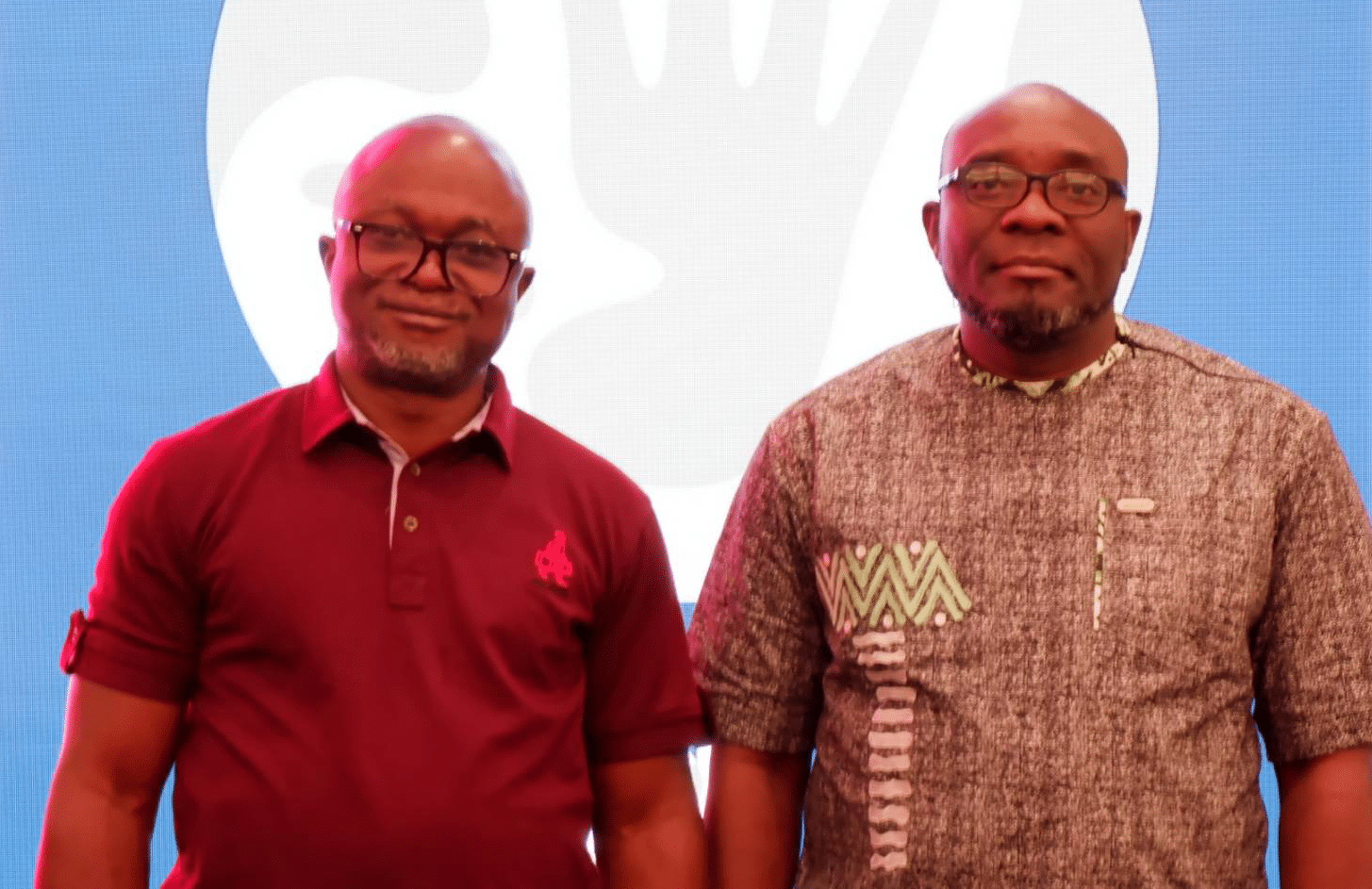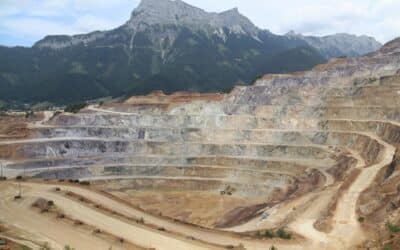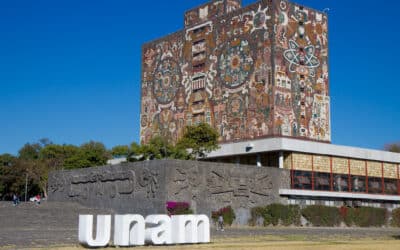Guest article by Kwami Kpondzo, Global Forest Coalition (GFC), and Josué Aruna, Congo Basin Conservation Society-Network
As Cape Town hosts the Degrees Global Forum this week, a crucial question looms over the gathering: Why is Africa increasingly becoming a key battleground in the debate over dangerous and unproven geoengineering technologies devised in the Global North?
Could it be that strong opposition to geoengineering (especially solar geoengineering) from a number of African nations in recent years has forced proponents of geoengineering research to focus their efforts on undermining this opposition? Rather than listening to real solutions to the climate crisis proposed by Indigenous Peoples and Local Communities, solar geoengineering research is just a distraction which gives polluters another excuse to continue business as usual, to continue extractivism (the main cause of carbon emissions in Africa), and to evade their historical responsibilities for causing the climate crisis.
The forum, taking place May 12-16, represents an attempt to normalise solar radiation manipulation (SRM) research in Africa under the guise of “developing country engagement.” Even if The Degrees Initiative dismisses criticism directed towards it as misinformation and a lack of understanding, make no mistake, this is colonialism dressed in climate clothes, and we Africans have seen this script before. African civil society organisations have denounced The Degrees Initiative as an act of climate colonialism to co-opt the African climate movement, academics, and youth that will threaten the sovereignty, ecosystems, and futures of African peoples.
For centuries, Africa has been treated as a laboratory for Western experimentation, from colonial-era medical trials to toxic waste dumping. Now, as the climate crisis intensifies, wealthy nations and corporations are eyeing our continent as the perfect testing site for their latest dangerous experiment: geoengineering technologies that could catastrophically alter our weather patterns, disrupt our agriculture, and threaten the livelihoods of millions. The type of research that The Degrees Initiative is supporting should be seen as a stepping stone to outdoor experiments. Just last week, the United Kingdom announced funding of £57 million for the government’s Advanced Research + Innovation Agency (ARIA) to conduct further research and experiments into SRM technologies – how long before such funding is directed towards experiments in Africa?
The fact that governments like the UK are now funding outdoor solar geoengineering experiments also shows that while there is a pretence that Africa should be to be at the forefront of the debate, in reality a small number of countries in the Global North are pushing ahead with geoengineering research regardless of whether they have the consent of African countries and others in the Global South. The countries pushing a geoengineering research agenda are also the ones with the financial and military resources to deploy geoengineering at scale, whether unilaterally or otherwise.
This is not capacity building, it’s capacity capturing. It’s an attempt to create a narrative that these technologies are in Africa’s best interest, when they clearly serve the interests of those who have historically exploited our continent.
The Degrees Initiative claims to put “developing countries at the centre” of geoengineering research. But centred for what purpose? To bear the risks of technologies that could devastate our communities? Technologies like Stratospheric Aerosol Injection (SAI) – which involves spraying sun-dimming particles into the atmosphere – could disrupt crucial weather systems like the Indian monsoon and exacerbate droughts across our continent. The consequences for our farmers, who depend on predictable weather patterns, would be devastating.
Consider the scale of what’s being proposed. Although The Degrees Initiative is specifically focused on SRM, it also serves to open the door to wider geoengineering technologies to be tested in Africa. Some schemes, like Bio-Energy with Carbon Capture and Storage (BECCS), would require land equivalent to one-third of Africa’s total landmass. This massive land grab would displace communities, threaten food security, and destroy traditional farming practices. All this so that wealthy nations can continue burning fossil fuels while pretending to address climate change.
The timing of this forum is particularly telling. A year ago, at UNEA 6, African nations stood united in opposing a resolution that sought to normalise solar geoengineering research. Our position was clear: Africa rejects these dangerous technologies. The African Ministerial Conference on the Environment (AMCEN) has also called for a global governance mechanism to ban SRM, emphasising the precautionary principle that should guide our approach to such risky propositions.
Yet here comes The Degrees Initiative, funding African researchers and attempting to co-opt our institutions into supporting their agenda. This is not capacity building, it’s capacity capturing. It’s an attempt to create a narrative that these technologies are in Africa’s best interest, when they clearly serve the interests of those who have historically exploited our continent.
What Africa needs are real climate solutions, not dangerous distractions. We need support for our renewable energy transition, drawing on our abundant solar and wind resources. We need investment in ecosystem restoration and agroecological farming practices that can naturally sequester carbon while preserving biodiversity and supporting livelihoods. We need climate finance for adaptation that empowers our communities rather than endangering them.
The path forward is clear. We need a rapid and equitable phase-out of fossil fuels, substantial climate finance for adaptation, and support for African-led solutions that prioritise our people and our ecosystems.
The proponents of geoengineering often argue that these technologies might be necessary given the severity of the climate crisis. However, this argument conveniently ignores who created this crisis and who will bear the risks of their proposed “solutions.” Africa, responsible for less than 4% of historical greenhouse gas emissions, is already suffering disproportionately from climate impacts. Now we’re being asked to serve as guinea pigs for technologies that could make our situation even worse.
As the Degrees Global Forum convenes in Cape Town, African civil society organisations are sending a clear message: Hands off Mother Earth! We will not allow our continent to become a testing ground for dangerous geoengineering experiments. We demand real climate solutions that address the root causes of the crisis while respecting our sovereignty and protecting our communities.
The path forward is clear. We need a rapid and equitable phase-out of fossil fuels, substantial climate finance for adaptation, and support for African-led solutions that prioritise our people and our ecosystems. What we don’t need are more capitalist and colonial mindsets projects that treat Africa as a laboratory for risky technologies.
To the participants of the Degrees Global Forum, we say this: Listen to African voices. Respect our rejection of geoengineering, and our right to say no to this research. Join us instead in fighting for real climate justice and supporting solutions that put people and the planet first. Africa’s future must be shaped by Africans, not by those seeking to experiment with our skies, our lands, and our lives.
Kwami Kpondzo is the Extractive Industries, Tourism and Infrastructure Campaign Coordinator at Global Forest Coalition (GFC), and Co-coordinator of the HOME Alliance Africa Working Group on geoengineering.
Josué Aruna is the Director of the Congo Basin Conservation Society-Network and Co-Coordinator of the HOME Alliance Africa Working Group on geoengineering.



